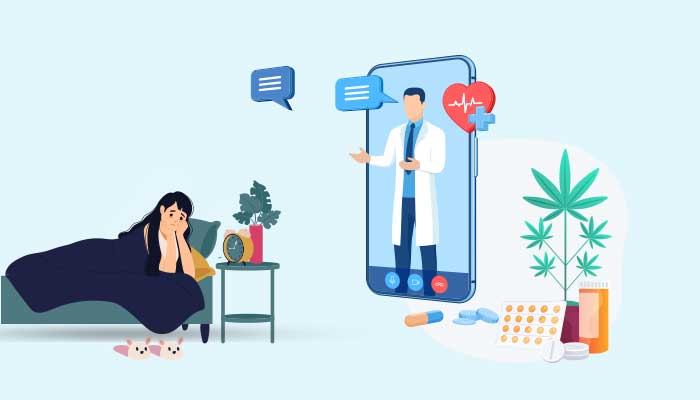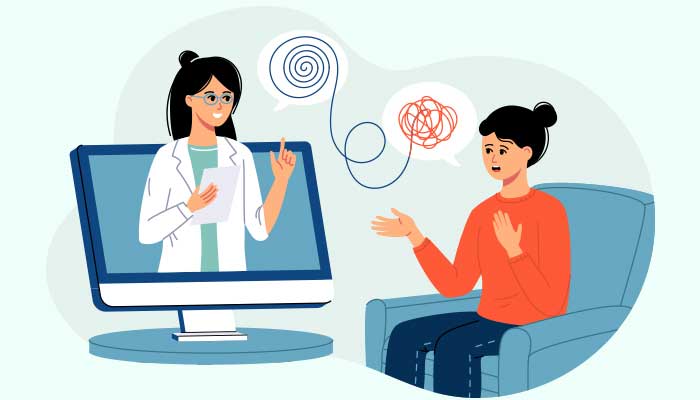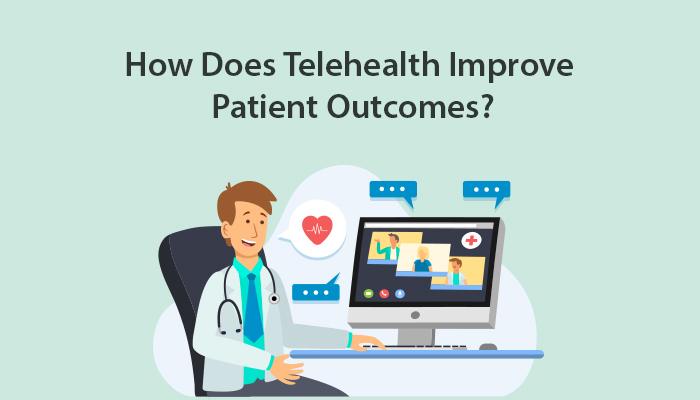Does telehealth really improve patient outcomes?
The fast and broad adoption of telemedicine is being fueled by a variety of commercial reasons. Patients are increasingly requesting remote medical consultation, with one out of every five prepared to move from a provider that does not provide telemedicine to one that does.
Providers are also interested in implementing the technology because of the numerous benefits it provides to practices in terms of higher income, enhanced flexibility, cheaper expenses, and improved work/life balance.
All of these factors matter, but only if they lead to better patient outcomes through safe and effective clinical care. Telemedicine must create healthy and happy patients in order to be useful. Fortunately, that is precisely what it is capable of.
Below are same ways through which Telehealth Improve patient outcomes:
Focus on Patients’ Education
Because it eliminates the main hurdles associated with an in-person model, such as time, location, and expense, telehealth can improve your existing patient education delivery.
This might make a big impact on those with chronic illnesses.
Teach-back quizzes and informative videos personalized to each patient’s diagnosis, therapy, or medicine may simply be supplied during a patient’s episode of care.
During virtual home visits, health practitioners may keep track of the patient’s completed modules and go over the material with them.
Provide Effective Follow-ups

In many cases, following up after a visit is a vital element of the recovery process, especially for acute conditions.
They provide an opportunity for the physician to confirm that the diagnosis was right and that the treatment plan is effective. Patients can also express any concerns they have or report any new or worsening symptoms.
Unfortunately, all of the above-listed issues to therapy frequently prevent patients from following up on their treatment. That is why, for follow-up care, telemedicine software have become popular alternative to office visits.
Review Test Results and Provide Feedback

Using telehealth, results of diagnostic imaging or laboratory testing are reviewed using remote patient monitoring devices. However, reviewing this critical knowledge face to face is far more beneficial.
As a result, the physician may be confident that the patient is comprehending the information and behaving as intended. Telemedicine is a far more effective means of sharing this information, and it’s typically reimbursable for the provider as well.
Proactive Care for Chronic Conditions

Millions of people in the United States suffer from one or more chronic illnesses. Managing them can be difficult for both patients and doctors.
Eliminating the requirement for an office visit for every contact lightens the strain and allows for more regular monitoring and adherence to the treatment plan.
Focus on Mental Health

Depression and other forms of persistent mental illness are becoming more widespread. Telehealth has proved to be efficient in comparison to in-person consultation in treating mental conditions
Patients like how convenient and private it is. It’s also one method to address the nation’s growing scarcity of qualified healthcare professionals.
Medication Guidance and Monitoring

Patients on drugs should be monitored, especially if they are on long-term treatment, but an office visit may not seem necessary, especially if everything appears to be going well.
Telehealth will play a significant part in the future of medicine. Patients benefit from the convenience as well as better health results. Physicians gain freedom, a new cash stream, and the joy of assisting their patients in improving their health. Telemedicine is a win-win situation for the healthcare system as a whole.
Conclusion
Consumers today, particularly those in the healthcare industry, have high expectations. Meeting those expectations might be difficult for busy healthcare practitioners with limited resources.
However, in today’s reform-driven healthcare environment, patient happiness will only become more important – which means providers can’t afford not to explore for new methods to keep their patients happy.


